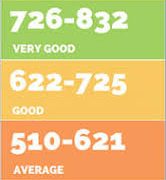Home mortgages are loans that are taken to buy a property, for which the property itself is used as collateral. Owning a home is a very big, and usually a one-time investment for many. With increasing real estate prices and decreasing interest rates on loans, many people are using the home mortgage loans to buy property.
Home mortgage rates are the rates of interest that are to be paid along with the capital for taking the mortgage loan. Home mortgage rates do not remain steady over a long period of time. A lower rate means lower monthly payments, leading to lower costs on the property. Depending on the kind of interest rate, there are two kinds of home mortgage loans: Fixed Rate Mortgages (FRMs) and Adjustable Rate Mortgages (ARMs). FRMs are mortgages for which the rate of interest remains the same for the entire period of the loan. These can be for a period of 10, 15, 20 or even 30 years. Adjustable rate mortgages, on the other hand, have fluctuating rates of interest. This is ideal when there is likelihood of the rates to decrease. ARMs are preferred by people who plan for shorter periods. ARMs are offered at lower rates than FRMs to attract customers, but they also contain a certain level of risk. The fixed rate mortgages are a very predictable, safe option.
Mortgage rates fluctuate on the basis of an economic index. The mortgage bond market works according to a process called securitization. This securitization enables creation of more loans and greater mobility of funds by keeping the mortgage rates low and allowing more credit for ideal customers.
The best source for knowing about home mortgage loan rates is the Internet. Most home mortgage loan companies provide information through their websites also. These rates are updated daily. Their sites also have easy-to-use home mortgage calculators that give all information, including payments to be made each month and the tax advantages, with the single click of a button. Most of them also have financial advisors who would provide advice online, or over the phone. A professional mortgage lender would be able to provide accurate information about the mortgage loan rates as and when they are applicable.
The National Australia Bank is keeping its variable mortgage rates on hold despite moves by its big three rivals to hike rates in response to increased funding costs.
NAB’s chief executive, Andrew Thorburn, indicated the bank’s decision was a direct result of an environment in which huge profits and revelations of misconduct aired at the royal commission had damaged the big banks’ public standing.
“We need to rebuild the trust of our customers, and by holding our NAB standard variable rate longer, we help our customers for longer,” Thorburn said.
“By focusing more on our customers, we build trust and advocacy, and this creates a more sustainable business.”
Thorburn said the bank would continue to monitor funding conditions but wouldhold its standard variable rate at 5.24%.
The prime minister, Scott Morrison, reacted to NAB’s decision by tweeting it was a good call: “They seem to get it,” he said.
Westpac, Commonwealth Bank and ANZ have over the past two weeks said they would raise their standard variable rates for owner-occupiers to 5.38, 5.37 and 5.36% respectively.
The out-of-cycle hikes by NAB’s rivals led to economists last week suggesting the Reserve Bank of Australia would keep the cash rate on hold at a record low of 1.5% for even longer than previously thought.
The RBA, which has not moved on rates since August 2016, would be wary of increasing the load on borrowers – and decreasing the amount they can spend elsewhere in the economy – and could even cut the cash rate if the banks hike further, AMP chief economist Shane Oliver said.
Many homeowners in Australia are starting to plan for their next move, with more than a third thinking of upsizing or downsizing in the next five years.
This is one of the findings of the latest Westpac Home Ownership Report, which revealed that there was a 29% growth in the number of homeowners who are prioritising buying a new home in the next five years over other housing-related activities like renovating and investing.
In fact, the number of homeowners preferring to renovate has actually decreased by 3%, while those planning to buy an investment property remained the same.
Westpac head of home ownership Lauren Fine said the housing downturn has created opportunities for motivated buyers to consider locations which were previously out of reach. This was borne out by the report, which said that homeowners are over twice as likely to buy a home to live in a more desirable area.
“For example, larger properties in the inner suburbs of major cities have seen declines in value in the later part of 2018, making these popular areas more accessible,” Fine said.
When it comes to relocating, upsizers and downsizes have different priorities. Upsizers tend to consider safety and proximity to work and social hubs as essentials, while downsizes are more likely to have access to public transport and proximity to their family and friends in their checklists.
With regard to financial challenges, upsizers are expected to go through some tougher times ahead when looking for a new home.
“Given the financial challenges upsizers expect to face, this could explain why they are more likely than downsizes to be willing to take fewer holidays in order to achieve their housing priority,” Fine said.
However, this does not mean that downsizes won’t face challenges. They actually face a different hurdle: managing the move and reducing the amount of “stuff” they have.
Either way, Fine said moving out and looking for a new home will come with emotional challenges.
“It can be difficult to leave a home to move into the next, particularly for downsizes who may have seen their family grow up in that home. Up sizing can also be tricky, particularly if it requires making certain compromises for more bedrooms,” she said.
However, there are benefits too, particularly for downsizes, given that a small home will require less upkeep and maintenance. On the other hand, upsizers will come to realise that living in a more “breathable” house with enough rooms is worth it, especially with growing families.
There are a few things you should consider when you are looking for an online lender. These tips are things you should look for carefully and completely prior to making any decision to work with a specific online lender. By following these tips, you will help ensure that you are working with a reputable company for all of your lending needs, as well as a company that will work well with your entire situation.
First look at the web design of their entire webpage. This should be just as important to you as it would be if you were to say, walking directly into a store. Things you should look for in their website should include the ability to obtain the needed information without hassle; you should not have to click fifty times to gain the information you need about their company. Additionally, you will want to look at the way the page loads for you fast or slow and take notice of errors. A fast loading website, with no errors, will indicate they have a server that is reliable, therefore showing they are concerned enough about their customers ability to access their site that they have obtained someone reliable.
You will also want to make sure they have a solid, reasonable, easy to read, and easy to access privacy policy. This is extremely important, any website that is trustworthy will have a privacy policy clearly posted that explains what they will do with the information gathered from your online application.
Look for a business with a solid history, each website should contain an about us page. If they do not have one, it is in your best interest to immediately discredit that particular online lender from your list. You will want to look at various thing such as, how many years have they been in operations, what area of the world do they do business from, make sure they have an easy to spot telephone number, address, and emails for the various departments you may need to contact.
Another particular piece of advice that any person looking for an online lender should follow is to find a little bit about their reputation. There are several different ways you can go about this, the first way is by speaking to your family, associates, and friends. Word of mouth is possibly one of the best types of recommendation any type of business can get, particularly online lenders. This will allow you to become confident in their abilities and their services.
IF YOU are looking at property investment or buying a home, always good to use a mortgage broker to help you with your loan.
They do more than half of all Australian mortgages. This is concerning, because mortgage brokers do not exactly come with a good recommendation.
Mortgage brokers have recently been hit with searing criticism from powerful organisations such as the Australian Competition and Consumer Commission (ACCC), the Australian Securities and Investments Commission (ASIC), and the Productivity Commission. Each of them have raised red flags about the way brokers operate.
Mortgage brokers provide their service to us for free. But they do get paid, making money on every loan — often thousands of dollars. The payment comes from the banks who make the loans. So who are their true customers? Who are they really working for? The banks or the borrowers?
ON COMMISSION
When a broker makes a loan, they normally get an upfront payment of just over half a percentage point of the loan amount. If the loan is for $100,000, they get about $500. For a loan of $500,000 they might get about $3000. There are also “trailing commissions” where the broker is paid by the lender every year afterwards, so long as the borrower keeps paying back the loan.
So will the broker get you the best possible deal? You’d hope so, right? But there’s bad news in store.
Let’s ignore the fact that most brokers only deal with a small “panel” of lenders so they can’t actually shop the whole market. Even within their panel they might not screw the price down as much as you want, because it would hurt them to do so.
In a report in 2017 ASIC found that the broker’s commission could be reduced in some cases if the broker negotiated a big discount on the interest rate for the borrower. “This creates a clear conflict of interest,” ASIC said.
CONFLICTED
Brokers have no legal obligation to get you the best possible deal. Their legal obligation is to find you a loan that is “not unsuitable,” whatever that might mean. Given that billions of dollars of upfront commissions and trailing commissions are flowing through the broking industry every year, this conflict of interest is potentially very significant.
Choice, the consumer advocacy organisation, came up with some appalling revelations about mortgage brokers a few years back. They sent mystery shoppers into 15 mortgage brokers to see what happened. They mystery shoppers came back with stories of brokers pushing million-dollar loans onto them, not disclosing commissions, and providing advice that completely failed to meet their needs.
Out of 15 brokers, only one was rated “good”, and seven scored the lowest possible rating, “poor”.
The customers shopped at some of Australia’s biggest mortgage brokers, Aussie Home Loans, Mortgage Choice and Australian Finance Group. It is possible that smaller brokers might be different and it is also possible that mortgage brokers might have improved since the mystery shoppers went in.
BIG FAT MIDDLEMEN
I’m always suspicious of any industry with middlemen. I much prefer to cut out travel agents, for example, and book directly. The mortgage broker is pure middleman and, what’s worse, they’re not even the only middleman. There is usually also another entity, called an “aggregator”, who stands between the broker and the bank. They clip the ticket on the way through as well.
Banks own some of these brokers and aggregators, and when they do, it can skew where the brokers send their loans. For example, Commonwealth Bank owns Aussie Home Loans, and you’ll never guess which bank nearly 40 per cent of home loans brokered by Aussie Home Loans end up with. (It’s Commonwealth, and that 40 per cent is much higher than Commonwealth’s share of the overall market.)
The average mortgage broker makes $130,000 in revenue a year if they are a sole trader, and $86,000 after costs. (This can include brokers working part time.) The average mortgage broking business makes $357,000 and $120,000 after costs. These figures come from a new report by Deloitte Access Economics.
SO WHY DO WE NEED THEM?
While mortgage brokers look to have some concerning conflicts of interest, they would struggle to survive if they were plain bad value. And we haven’t considered the alternative yet! Imagine if your only option was to deal with the Big Four banks instead. Dealing with 1000 slippery snakes might sound hard until you realise your other option is to be eaten by one of four big tigers.
Sure, the Big Four banks compete with each other, but the ACCC finds they don’t compete all that hard.
“The pricing behaviour of each of the Inquiry Banks appears more consistent with ‘accommodating’ a shared interest in avoiding the disruption of mutually beneficial pricing outcomes, rather than consistently vying for market share by offering the lowest interest rates,” the ACCC said in a recent report.
It’s the lack of competition in mortgage lending that permits the mortgage brokers to pop up. And it is possible they’re not nibbling much out of the buyers’ side of the deal. It’s possible the hot, rich, blood-filled vein into which they’ve stuck their fangs is the banks’, not ours.
Brokers might even be doing us a favour by creating a bit more competition. It is far easier for a small non-bank lender to hook up with a bunch of mortgage brokers than to build their own sales network. The Productivity Commission found that brokers were “clearly beneficial for smaller lenders looking to diversify”.
“On average, we calculate that each would have needed to open 118 new branches to generate the equivalent market shares,” the commission wrote.
That extra competition is a big advantage of the existence of brokers, and you don’t necessarily have to use a broker to appreciate it. But brokers do provide benefits to borrowers as well.
The biggest advantage is for people who don’t have the time to shop around at all. If your plan was to walk into your bank and take the first thing they offer, then a broker will likely help you a lot. They are also good if you are not equipped to fill out all the paperwork. Customers report a 90 per cent satisfaction level with mortgage brokers.
Ultimately, the best people to keep mortgage brokers in line is us, their customers. If we ask no questions and take the first thing we get offered, we probably get what we deserve. But if we shop around, stay sceptical, quiz the bastards hard, and negotiate like our life depends on it, we can make mortgage brokers work for us, not just for the banks.
LOCAL REAL ESTATE AGENT
PROFESSIONAL MORTGAGE BROKERS IN PERTH
DO YOU NEED A RELIABLE CLEANERS?






